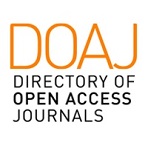Humanitarianism (re)dressed in the fashion dispositive: between appropriation and marketization
DOI:
https://doi.org/10.29147/dat.v6i2.388Keywords:
Design, Fashion Dispositive, Humanitarism, MarketizationAbstract
The twentieth century consolidates changes in the political-economic-social world which reveal an atmosphere taken by neoliberal rationality, where the market dictates the rules. One of the characteristics of this context is the commercialization of diverse instances of life, including human rights. With increased attention to humanitarian crises, humanitarianism becomes one of the strengthened variables in the dispositives – social factors that make power diagrams operate in the production of subjectivity. Fashion, the field of this investigation, is considered one of the dispositives that outlines the ways of being, thinking and acting of this time, in a specially strengthened way. The general objective of this article is to discuss the capture and use of humanitarian issues by the fashion dispositive. Qualitative in nature, the study is developed through theoretical review, documentary observation with bibliographic and iconographic revision, based on the critical analysis of the discourse. The articulations indicate that humanitarianism is a relevant resource of the fashion dispositive in the neoliberal context, which, in times of revision of values, uses humanitarian appeals as a tactic for its own maintenance.
Downloads
References
DELEUZE, Gilles. Post-Scriptum sobre as Sociedades de Controle. In: Conversações: 1972- 1990. Tradução de Peter Pál Pelbart. São Paulo: Editora 34, 1992.
DEYRA, Michel. Direito Internacional Humanitário. Lisboa: GDDC, 2001.
DOUZINAS, Costas. The many faces of Humanitarianism. Parrhesia Journal of Critical Philosophy, nº 2, p. 1–28, 2007.
FISCHER, Rosa M. Foucault e a análise do discurso em educação. Cadernos de Pesquisa, nº 114, p.197-223, 2001.
FOUCAULT, Michael. A arqueologia do saber. Rio de Janeiro: Forense Universitária, 2008.
FOUCAULT, Michael. Microfísica do poder. Rio de Janeiro: Paz e Terra, 2017.
FOUCAULT, Michael. Nascimento da biopolítica. São Paulo: Martins Fontes, 2008a.
GROPPO, Luís. Responsabilidade social empresarial e a mercantilização da solidariedade. Serviço social e Sociedade, nº 91, p. 143-162, 2007.
HOURS, Bernard. O espetáculo da desgraça alheia. In: Le Monde Diplomatique, 2008. (http://diplomatique.org.br/o-espetaculo-da-desgraca-alheia).
LIPOVETSKY, Gilles. A felicidade paradoxal: ensaio sobre uma sociedade de hiperconsumo. São Paulo: Companhia das Letras, 2007.
LIPOVETSKY, Gilles. O Império do efêmero: a moda e seu destino nas sociedades moderna. São Paulo: Companhia das Letras, 1989.
MACKEY, John; SISODIA, Raj. Capitalismo consciente: como libertar o espírito heróico dos negócios. São Paulo: HSM Editora, 2013.
MARTINELLI, Antônio C. Empresa-cidadã: uma visão inovadora para uma ação transformadora. In: IOSCHPE, E. B. Terceiro setor: desenvolvimento social sustentado. São Paulo: Paz e Terra, 1997.
MEISLER, Rony; PUGLIESE, Sérgio. Rebeldes têm asas. Rio de Janeiro: Sextante, 2017
PAOLI, Maria C. Empresas e responsabilidade social: os enredamentos da cidadania no Brasil. In: SANTOS, Boaventura de Sousa (Org.). Democratizar a democracia: os caminhos da democracia participativa. Rio de Janeiro: Civilização Brasileira, 2002.
RESERVA. Site da marca Reserva, 2021. (https://www.usereserva.com/).
SERRAL, Isabelle; MESQUITA, Cristiane. Body meets clothes: Fashion Design between normatization and utopia. DAT Journal, nº 3, p.52-75, 2019.
SOUZA, Kárida. De mercenários a humanitários: As EMPse as Possibilidades Discursivas do Humanitarismo na Política Mundial. In: 4º Encontro Nacional da Associação Brasileira de Relações Internacionais, 2013.
SVENDSEN, Lars. Moda: uma filosofia. Rio de Janeiro: Zahar, 2010.
TOSCANI, Oliviero. A Publicidade é um cadáver que nos sorri. São Paulo: Ediouro, 1996.


























